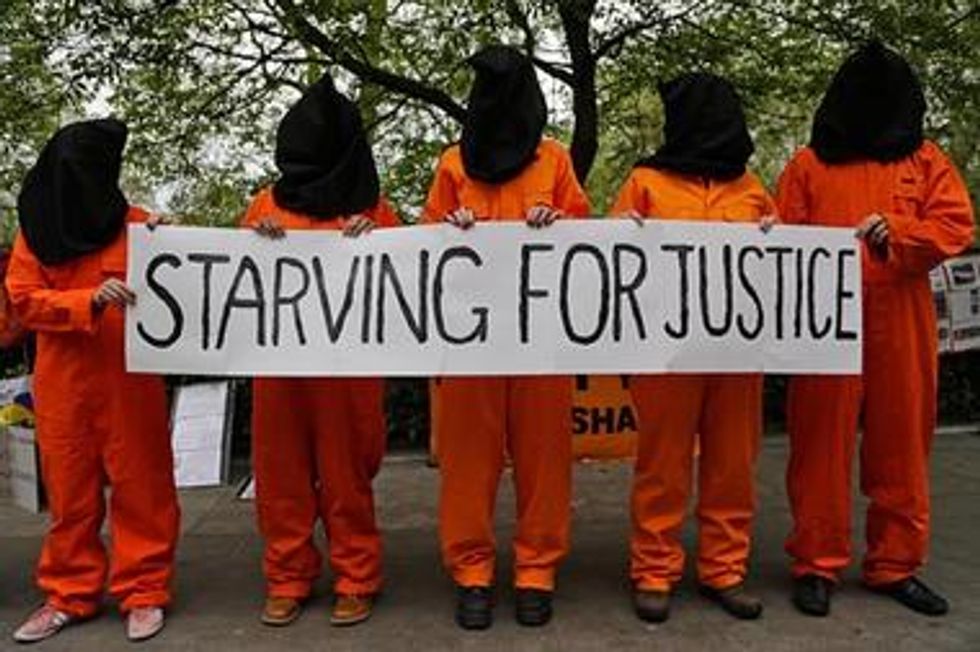Four detainees at the US offshore
Guantanamo prison have filed a federal lawsuit demanding an immediate halt to the regular practice of pumping prisoners with drugs and force-feeding them, tactics employed by military 'medical professionals' in attempt to break the detainees' ongoing hunger strike.
The motion was brought by the lawyers of Shaker Aamer, Nabil Hadjarab, Ahmed Belbacha and Abu Wa'el Dhiab, all of whom have been cleared for release yet continue to be detained.
The inmates and their lawyers declare this policy a gross violation of human rights.
"I am participating in this hunger strike of my own free choice...hunger striking is the sole peaceful means that I have to protest my indefinite detention," said detainee Belbacha in a declaration that accompanied the plaintiff's motion.
And Hadjarab, also being force-fed, added: "I do not want to die, but I am prepared to. All I am asking is that I be given the choice whether to eat."
Reglan, the drug administered during forced-feedings, has severe side-effects, including depression and suicidal thoughts. According to the FDA warnings, the drug can also spark Parkinsons-like symptoms.
166 people are still incarcerated at the military prison in Cuba that has been widely condemned for inhumane conditions, systematic use of torture, and absence of due process for inmates, including long-term indefinite detentions without trial or formal charges.
Over 100 detainees have been on hunger strike since February to protest these conditions. As Reuters reports:
Forty-four were being fed at least some of the time through tubes inserted into their nostrils and down into their stomachs, often while strapped down in restraint chairs.
Prisoners have described the process as painful and degrading. Their lawyers say it is "grotesque" and constitutes torture and inhumane treatment, which are banned by international law.
The detainees' lawyers--with the London-based group Reprieve--say that the forced-feedings are of particular concern as the Muslim holiday of Ramadan draws near. A Reprieve statement reads:
The motion has been given added urgency by concerns that prison staff will force-feed the Muslim detainees during Ramadan - a period of day-time fasting in Islam which begins on July 8.
In response to the lawyers' demand for quick action, U.S. District Judge Rosemary Collye gave the government until Wednesday evening to respond.
_____________________



